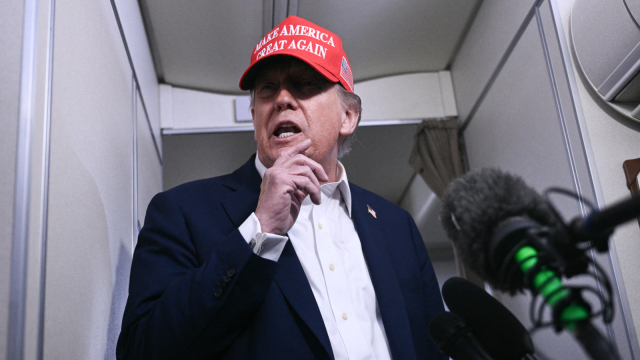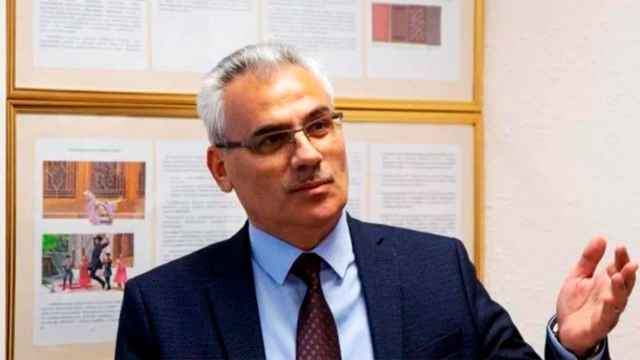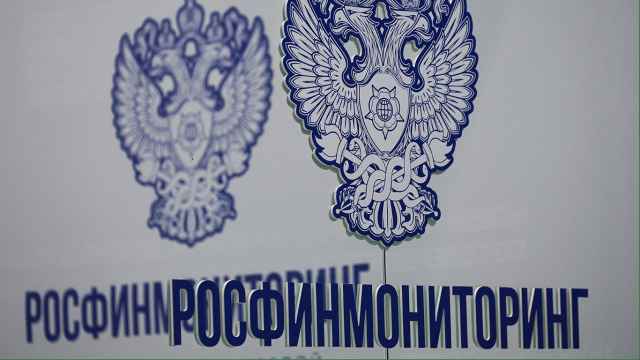WASHINGTON — The BRIC countries are united in opposing U.S. efforts to weaken or eliminate mechanisms to control currency fluctuations, Deputy Finance Minister Dmitry Pankin told reporters late Thursday.
Brazil, Russia, India and China will put up "strong resistance" to attempts to make a "harsh appraisal" of currency controls at the annual meeting of the International Monetary Fund and World Bank in Washington, Pankin said.
The BRIC countries "have agreed on a position that exchange rates aren't themselves a problem," Pankin said. "Rather, they are a consequence of deeper processes, such as tendencies to save, to invest, of the investment climate."
U.S. Treasury Secretary Timothy Geithner said earlier in the week that large economies undervaluing their currencies might accelerate inflation, create asset bubbles and restrict growth. China is the biggest target for criticism after limiting the yuan's rise to about 2 percent against the dollar since a June pledge to make the currency more flexible.
Japan last month sold the yen for the first time in six years to spur exports and economic growth, joining countries across Asia and Latin America that have tempered gains in their currencies against the dollar. Brazil's Finance Minister Guido Mantega warned Sept. 27 of a "currency war" and said his government would buy all "excess dollars" in the market to curb the real's appreciation.
Capital "fluctuations" may also pose a risk for Russia, Pankin said.
"I don't believe in a weak currency as a good way of having growth," Alexei Ulyukayev, a first deputy chairman of the Central Bank, said in an interview Tuesday.
The ruble depreciated the most in three weeks versus the dollar as oil declined. The currency weakened 1 percent to 29.98 per dollar at the close of official trading in Moscow on Friday.
The Central Bank has pledged to shift its policy regime to target inflation and make the ruble a free-floating currency. The regulator now buys and sells currency on the market to steer the ruble's value against a basket of euros and dollars to smooth "excessive volatility" in the exchange rate.
The Central Bank has "made serious progress in liberalizing the exchange rate," selling $1.3 billion in September compared with interventions earlier this year that exceeded $10 billion a month, Ulyukayev said.
The Central Bank's shift to a free-floating ruble is a "dangerous policy for the economy," because a more flexible exchange rate may undercut Russia's competitiveness, Deputy Economic Development Minister Andrei Klepach said Wednesday. "Russia isn't fully ready" for the free-float regime now, he said.
Sharp currency-exchange "fluctuations" act as a hurdle to growth, Pankin said. "From the point of view of any economic process or an investment project, it's impossible to work in a situation when the exchange rate jumps 20 percent in four months," he said.
"'A free-floating exchange rate isn't itself a cure for all ills," Pankin said.
A Message from The Moscow Times:
Dear readers,
We are facing unprecedented challenges. Russia's Prosecutor General's Office has designated The Moscow Times as an "undesirable" organization, criminalizing our work and putting our staff at risk of prosecution. This follows our earlier unjust labeling as a "foreign agent."
These actions are direct attempts to silence independent journalism in Russia. The authorities claim our work "discredits the decisions of the Russian leadership." We see things differently: we strive to provide accurate, unbiased reporting on Russia.
We, the journalists of The Moscow Times, refuse to be silenced. But to continue our work, we need your help.
Your support, no matter how small, makes a world of difference. If you can, please support us monthly starting from just $2. It's quick to set up, and every contribution makes a significant impact.
By supporting The Moscow Times, you're defending open, independent journalism in the face of repression. Thank you for standing with us.
Remind me later.





